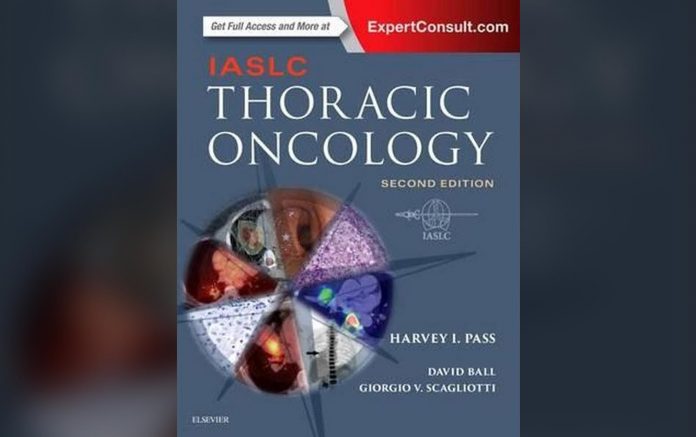Posted: June 2017
For the past 40 years the International Association for the Study of Lung Cancer has remained the only society exclusively dedicated to the study and treatment of lung cancer and other thoracic malignancies. These cancers are notoriously complicated, as was recently pointed out by their mutational burdens and histologic heterogeneity. New discoveries, novel trials, and changes in the standard of care are happening at an extraordinary rate, and medical, surgical, and radiation oncologists, as well as respiratory physicians, nurses, physician’s assistants, and social workers, need reliable and up-to-date sources of information filtered by experts in the field.
The organization published the first edition of The IASLC Multidisciplinary Approach to Thoracic Oncology in 2014 with the hope that this would be the first step in consolidating this information in one comprehensive source. However, we never imagined the explosion of information that would occur over a 2-year period that would need to be presented to the reader. The genomic phenotyping of lung cancer has expanded remarkably, necessitating the discovery and validation of third-generation targeted agents. The staging system for lung cancer has been modified and externally validated. Histologic classification of the disease has helped to define high-risk patients in early-stage cancer. Radiation techniques are being refined and expanded with greater implementation in oligometastatic disease as well as for early-stage patients; and, most dramatically, immunotherapeutic strategies, not limited solely to checkpoint inhibition, now dominate many of the novel trials for metastatic disease as well as for neoadjuvant and adjuvant therapy. The plan with respect to the The IASLC Multidisciplinary Approach to Thoracic Oncology was always to be able to update, amend, and incorporate new ideas in later editions so that the basics were retained, but new discoveries were discussed by the “discoverers” themselves.
That is why we now have a new edition of the reference text, IASLC Thoracic Oncology and with our new publishing partner, Elsevier, hope to get information to the “treaters” of the future in “real time.” This second edition, which includes updated material for more than 50 percent of the book, will help manage the wealth of new data so that the word gets out in a comprehensive, multispecialty, coordinated fashion. Novel findings are presented “hot off the press” in a way that academics and non-academics alike can keep up with thoracic cancer diagnostics and therapeutics so that the ultimate beneficiary is the patient.
IASLC Thoracic Oncology is meant to provide both the practitioner and the fellow with an updated reference source that will be useful in dealing with lung cancer. It is also meant to further unify the international community through recognition that wars are won by forming allies; and in the battle against lung and other thoracic cancers, the IASLC stands for such an alliance. The battle is not only fought in the clinics and the hospitals but also on the educational front so as to supply the troops with successful plans for therapy. The editors’ most profound wish is that the knowledge highlighted in the book and all of its associated future ventures will help to move the survival curves upward and toward the right.
—Executive Editor Harvey I. Pass, MD, with Editors David Ball, MD, FRANZCR, and Giorgio V. Scagliotti, MD, PhD ➲ Readers can obtain a copy of the IASLC Thoracic Oncology (2nd edition) by visiting Elsevier’s Bookstore at https://www.us.elsevierhealth.com/ or at this year’s ASCO meeting by visiting Elsevier’s Booth in the exhibit hall (#5041).











